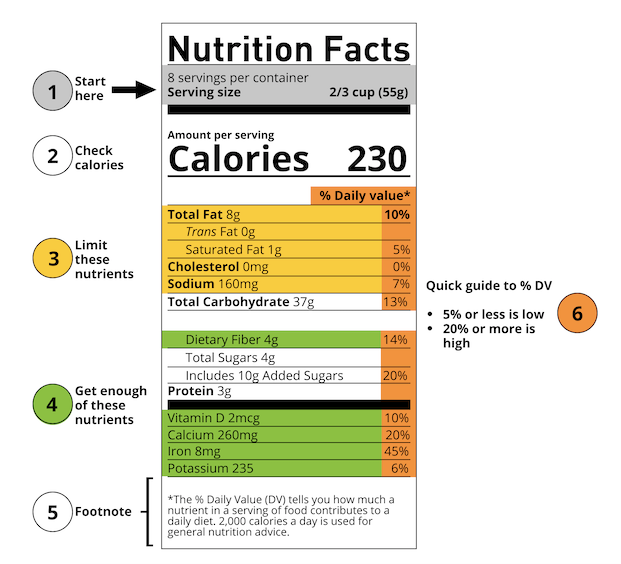Processed Foods: The Surprising Culprit Behind Your Weight Struggles?

When it comes to nutrition and health, not all foods are created equal. Processed foods, which are often high in sugar, salt, and unhealthy fats, can have a negative impact on metabolism and overall health.
In this post, we will explore the science behind processed foods and their effect on metabolism, and provide tangible tips for making healthier food choices.
First, let's define what we mean by processed foods.
Processed foods are foods that have been altered from their natural state in some way. This can include adding preservatives, flavorings, and other additives, as well as removing or refining key nutrients. Examples of processed foods include sugary drinks, packaged snacks, and fast food.
So, how do processed foods impact metabolism?
One key factor is their effect on insulin resistance.
Insulin is a hormone that helps the body regulate blood sugar levels. When we consume foods high in sugar and refined carbohydrates, the body produces more insulin to keep up with the influx of glucose.
Over time, this can lead to insulin resistance, which means that the body becomes less sensitive to the effects of insulin. This can ultimately lead to a host of health problems, including type 2 diabetes, obesity, and heart disease.

Processed foods also impact the gut microbiome.
Which plays a key role in metabolism and overall health. Studies have shown that diets high in processed foods can disrupt the balance of bacteria in the gut, leading to inflammation and other negative effects. This can impact everything from weight management to immune function.
The gut microbiome is made up of trillions of microorganisms that live in our digestive tract. These microorganisms play a crucial role in digestion, immune function, and overall health. When we consume processed foods that are high in sugar, unhealthy fats, and other additives, it can disrupt the delicate balance of bacteria in the gut microbiome. This can lead to inflammation and other negative effects.
For example, one study found that people who consume a diet high in processed foods had a less diverse gut microbiome than those who consume a diet high in whole foods. A less diverse gut microbiome has been linked to a number of health problems, including obesity, type 2 diabetes, and inflammatory bowel disease.
Another study found that diets high in processed foods can lead to a decrease in the number of beneficial bacteria in the gut, such as Bifidobacteria and Lactobacillus. These types of bacteria are important for maintaining a healthy gut microbiome and supporting immune function.
To protect the gut microbiome and support overall health, it's important to choose whole foods that are rich in fiber and other nutrients. Examples of whole foods include fruits, vegetables, whole grains, lean proteins, and healthy fats. These foods are not only better for the gut microbiome, but they also provide the body with the nutrients it needs to function properly.
In contrast, processed foods like chips, soda, and fast food are typically low in fiber and other nutrients, and high in sugar, unhealthy fats, and other additives. These foods can disrupt the balance of bacteria in the gut microbiome, leading to inflammation and other negative effects.
So, what can we do to make healthier food choices and protect our metabolism and health?
Here are some tangible tips:
- Choose whole foods whenever possible. Whole foods are foods that are as close to their natural state as possible. This can include fruits, vegetables, whole grains, lean proteins, and healthy fats. By choosing whole foods, we can avoid many of the additives and preservatives found in processed foods.
- Read labels carefully. If you do choose to eat processed foods, be sure to read labels carefully. Look for foods that are low in sugar and unhealthy fats, and avoid foods with a long list of additives and preservatives. When reading food labels on processed foods, there are a few things to look for:

Sugar content: Look for foods that are low in added sugars. Many processed foods contain high amounts of added sugars, which can negatively impact your health. The American Heart Association recommends limiting added sugars to no more than 25 grams per day for women and 36 grams per day for men.
Unhealthy fats: Look for foods that are low in unhealthy fats such as trans and saturated fats. These types of fats have been linked to an increased risk of heart disease, diabetes, and other health problems.
Additives and preservatives: Avoid foods with a long list of additives and preservatives. These ingredients can be harmful to your health and have been linked to a variety of health problems.
Fiber content: Look for foods that are high in fiber. Fiber is important for digestive health and can help you feel full and satisfied.
3. Cook at home. Cooking at home allows you to control the ingredients in your meals, and can help you avoid the added sugars and unhealthy fats found in many processed foods.
4. Limit sugary drinks. Sugary drinks like soda and sports drinks are some of the worst offenders when it comes to processed foods. By limiting your intake of sugary drinks, you can help protect your metabolism and overall health.
Processed foods can have a negative impact on metabolism and overall health. By choosing whole foods whenever possible, reading labels carefully, cooking at home, and limiting sugary drinks, we can make healthier food choices and protect our health.
Thank you for reading! If you have any questions or would like to learn more about living a healthier lifestyle, please don't hesitate to reach out to me. Contact me @
bjpcoetzer@me.com